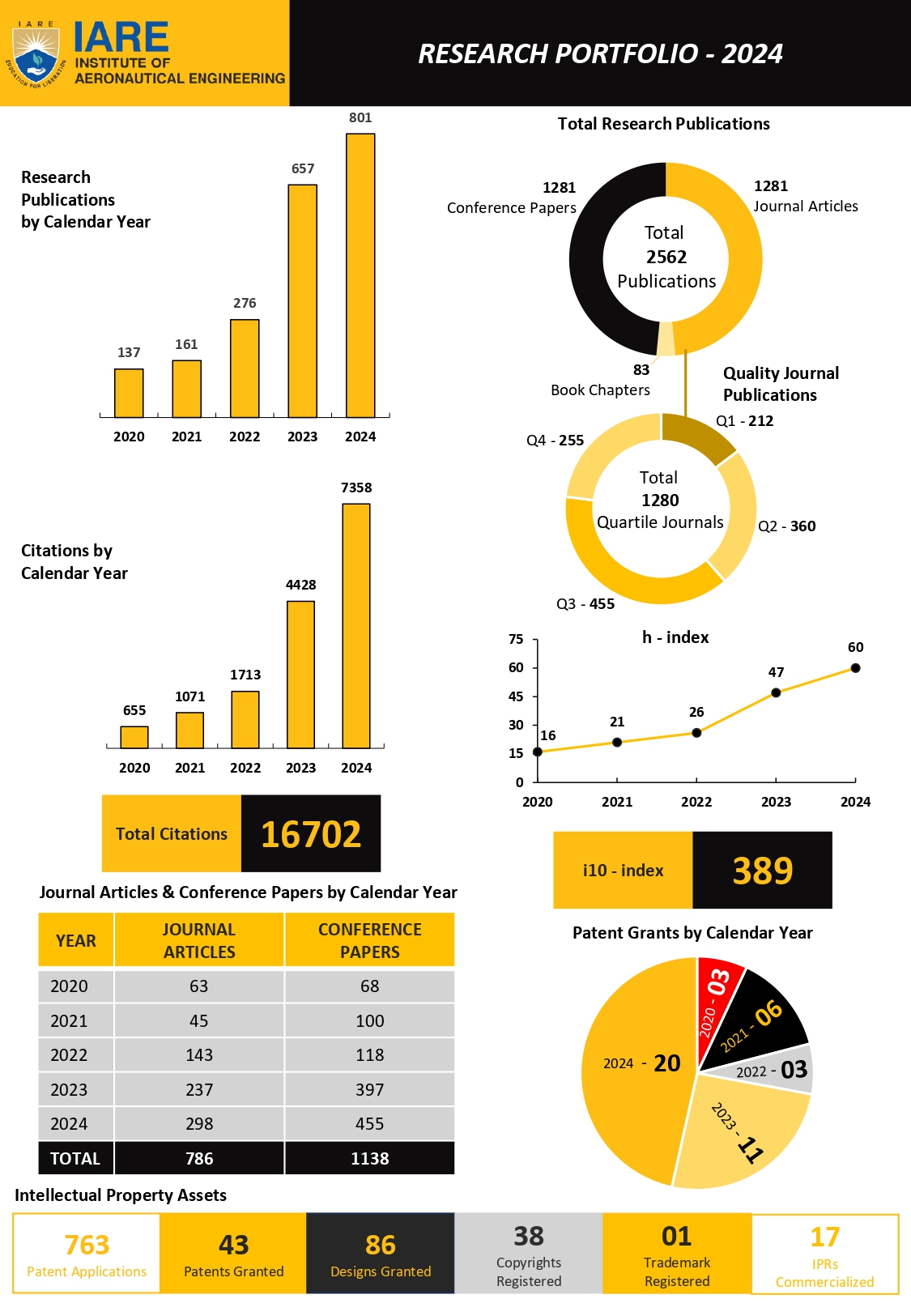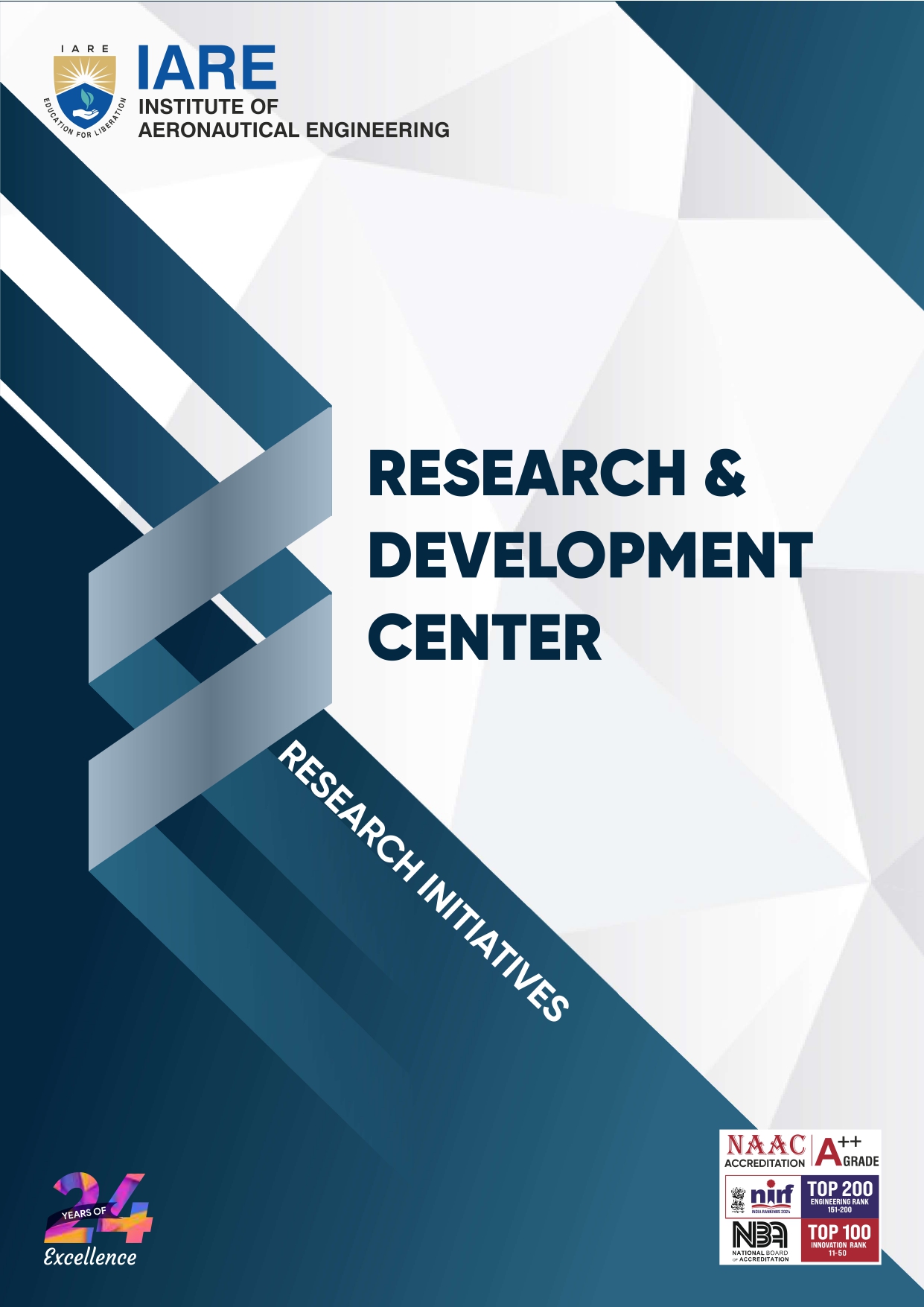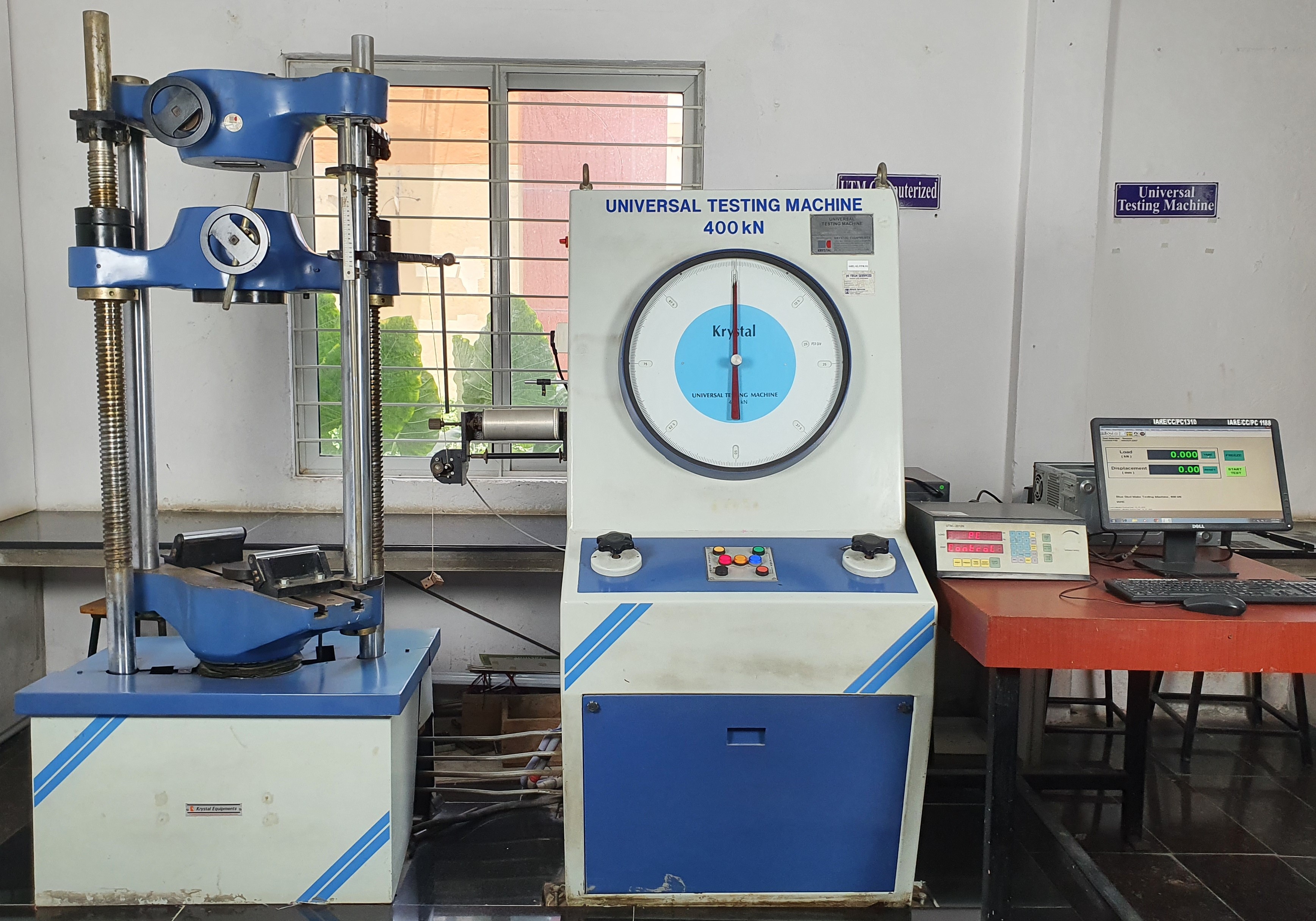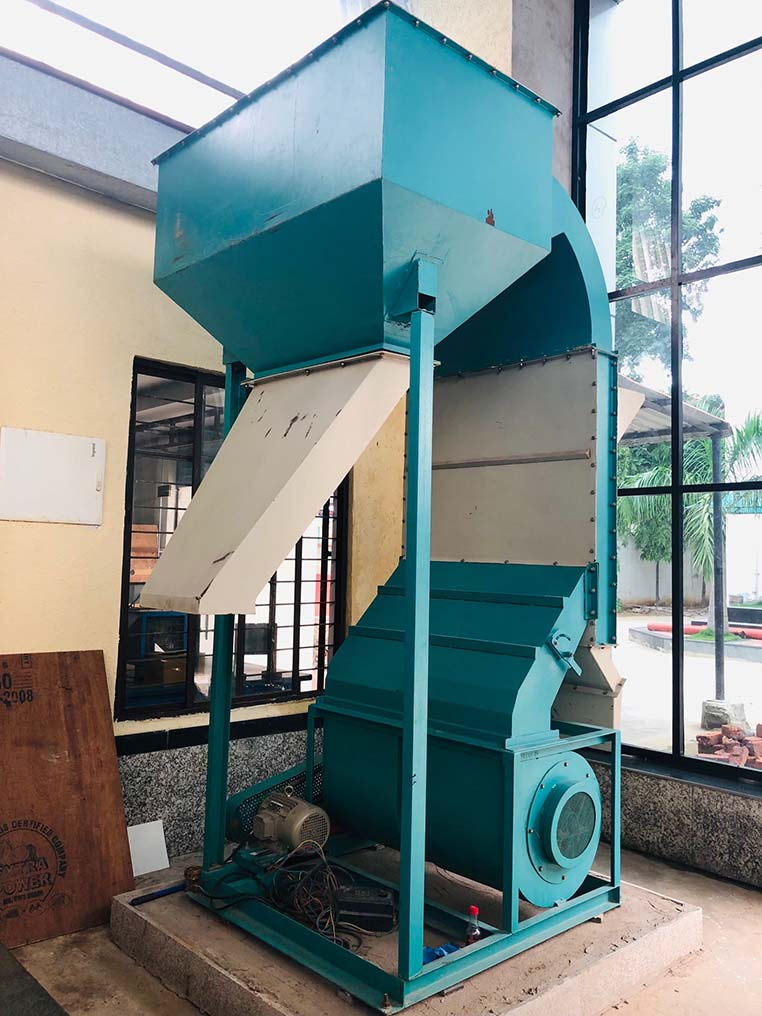Advanced Concrete Research and Innovation Center (ACRIC)
About
Structural engineering has always been the building blocks of civil engineering. The advanced concrete research and innovation lab is a place where ground-breaking technologies in concrete by incepting the concept of green building technologies, infusion of modern materials as coarse aggregates (nano materials, shredded waste plastic, polypropylene, organic and glass fibers), and inclusion of industrial & residential waste (fly ash, slag, salvaged aggregates etc.) in concretes for improvement of compressibility and tensile parameters while increasing the load bearing capacity of members. The center has facilities for testing the capacity of ingenious concrete specimens for viscoelasticity, structural integrity and shock resistance.
Major Equipment
Universal Testing Machine:
The servo control universal testing machine, is used for characterization of mechanical properties of ferrous and nonferrous materials and concrete composites. The students of civil engineering are using for material testing with constant loading and deformation to develop load vs deformation and time domain plots. The institute boasts two UTMs of various capacities from 100kN to 500kN for various testing including concrete specimen under ASTM C1716/C1716M – 20 standards and rebar tensile testing under ASTM A944 specifications.
| Purpose: |
Academic and Research |
| Equipment Cost: |
Rs. 6,50,000/- |
| Location and Hours: |
First Floor Room No 3015, Aryabhata Block, 09:30 AM - 06:00 PM |
Aggregate Sorting Machine
The electric powered aggregate sorting machine is used for sorting coarse and fine aggregates of variable sizes. It is powered by two ducted fans and when the mixture of aggregates is loaded, the blowers sort them through a cycloidal motion at various stages with reference to size and weight of individual aggregate grains. The students of civil engineering in graduate and post graduate levels are using this machine in the first step of advanced concrete building to sort various aggregates to be added at the various stages of concrete mixing.
| Purpose: |
Academic and Research |
| Equipment Cost: |
Rs. 8,00,000/- |
| Location and Hours: |
Ground Floor S 201, Behind Aryabhata Block, 09:30 AM - 06:00 PM |
Compression Testing Machine:
The hydraulic manual compression testing machine is used for testing the compressive strength of concrete specimen. Cylindrical specimen testing follows ASTM C39 and cubical adhere to ASTM C109/C109M – 20b standards. The students from post graduate civil engineering using the machine to test various standardized concrete specimens for viscoelasticity, structural integrity and shock resistance.
| Purpose: |
Academic and Research |
| Equipment Cost: |
Rs. 4,00,000/- |
| Location and Hours: |
Ground Floor S 204, Behind Aryabhata Block, 09:30 AM - 06:00 PM |
Major Software List
AutoCAD
 AutoCAD is a software developed and marketed by Autodesk Inc, an American multinational software corporation. This software is used by aeronautical engineers, architecture firms, civil engineers, and mechanical engineers for computational drafting as well as computer aided design purposes.
AutoCAD is a software developed and marketed by Autodesk Inc, an American multinational software corporation. This software is used by aeronautical engineers, architecture firms, civil engineers, and mechanical engineers for computational drafting as well as computer aided design purposes.
| Purpose: |
Academic and Research |
| Available For |
60 users |
| Cost: |
Rs. 6,50,000/- |
STAAD.PRO
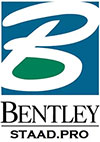 STAAD or (STAAD.Pro) is a structural analysis and design software application originally developed by Research Engineers International in 1997. In late 2005, Research Engineers International was bought by Bentley Systems. It is used by graduate and post graduate civil engineers for advanced structural analysis under various loads and structural conditions including and not restricted to seismic loads, wind loading, plain surface, inclined surface construction and structural integrity of buildings on various geotechnical conditions.
STAAD or (STAAD.Pro) is a structural analysis and design software application originally developed by Research Engineers International in 1997. In late 2005, Research Engineers International was bought by Bentley Systems. It is used by graduate and post graduate civil engineers for advanced structural analysis under various loads and structural conditions including and not restricted to seismic loads, wind loading, plain surface, inclined surface construction and structural integrity of buildings on various geotechnical conditions.
| Purpose: |
Academic and Research |
| Available For |
10 users |
| Cost: |
Rs. 3,60,000/- |
Contact
Dr. Venu Malagavelli
Professor of Civil Engineering
Email: venu@iare.ac.in
Phone: 9866271387

